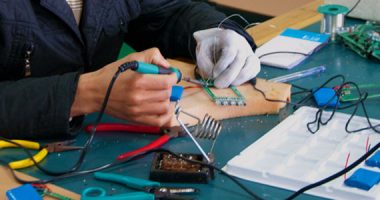Ele Carpenter’s conference at the last session of I + C + i has proved to be an unexpected synthesis of the main lines of work in recent months, and to define clearly three key vectors of cultural transformation in which we are immersed.
The emerging trinity is not mysterious, nor does it presuppose a divine revelation. It follows a practice that is affecting all cultural players and involves a progressive change in the conceptual approach of genres and formats, working methods, processes and styles of representation production and post-production. Carpenter restricted her analysis to the exhibition format, but it could also be extended to all cultural practices.
The new trinity has three interlocking areas with a certain simplicity to define the scope within which a new culture in being extended.
- The influence of collaborative digital technologies and Philosophy 2.0, are rethinking the processes of design, production, representation and storage of cultural activities.
- The progressive virtualization of centers and museums is an unstoppable process that involves a profound reflection on multiplatforms, multimedia convergence, virtual exhibitions and meta-exhibitions.
- “Materiality” is back, with the assertion of traditional processes, a new face to face and all the effects and paradoxes arising from the post-digital vector.
The emerging trinity can be formulated in many ways and is not due to any specific creed. It is necessary to understand how the unity between the physical and virtual is becoming inseparable and why the great call for participation can become a collective process that goes from contribution to co-creation. Each of the stages or vectors of the new cultural trinity can lead to more byzantine discussions, but at the same time, the radical activation of a process of change has only just begun. In this new complex, open and mutant context, reconciliation should replace the “councils” interdependence should replace autarchies, and self-organized flow to exclusive dogmas . No faith is necessary, just the feeling that all of us -in our own style, knowledge and speed- are creating a paradigm shift.





Ramon Sangüesa | 11 June 2010
Hola Juan
Buen post!
Para mí que andamos ya en lo post-digital de pleno que no es un regreso al objeto como antes sino a otro tipo de materialidad.
Me gustó que Ele Carpenter subtitulara su intervención “Code as Matter” pero precisamente creo que la vuelta de lo material es “Matter as code” extendiendo e invisibilizando, “normalizando”, el paradigma de lo programable en todos los niveles de la materia. Comenté con Bruce Sterling esta línea que él ya ha venido apuntado últimamente. Bruno Latour en relación con la difusión hacia todos los niveles del diseño (del que lo digital es una expresión):
http://ramonsanguesa.tumblr.com/post/621443772/digital-design-everywhere-the-first-self-replicating
Juan | 22 June 2010
Gracias Ramón, es muy oportuna tu matización. Creo que “el regreso de lo material” reside en seguir amplificando el concepto de “materia”. Lo mismo sucede con la noción de “realidad”. Hoy mismo leía una entrevista al polémico Craig Venter donde sugiere que el posible secreto de la vida reside en la información, pero la información no basta por sí sola…Se necesita un “starter” que la haga arrancar…Quizá el diseño en su sentido más amplio cumpla esa función…Bueno, lo dejamos ahí, porque entramos en arenas movedizas.
Leave a comment